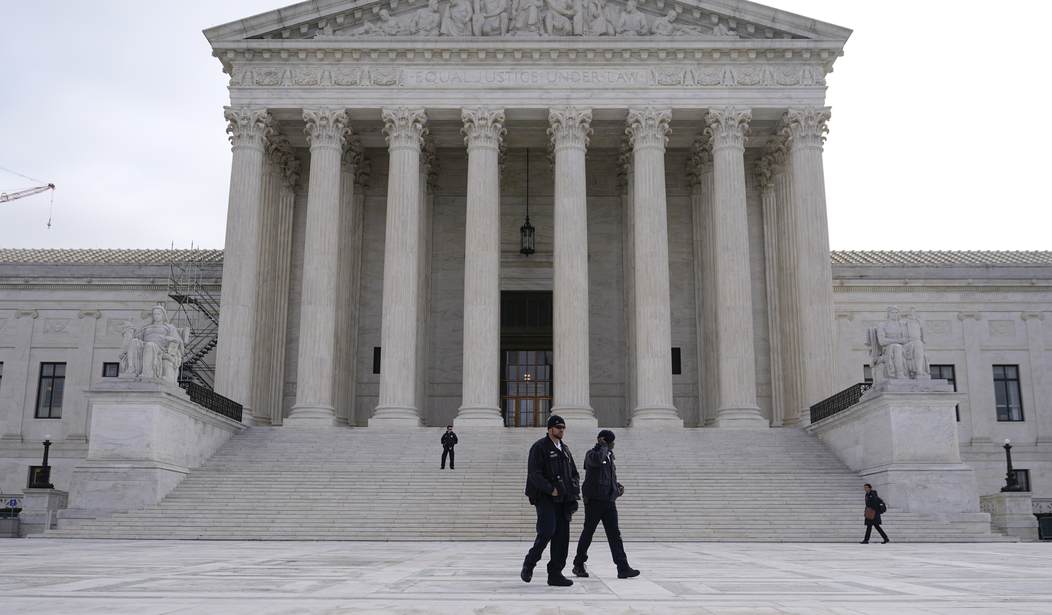The Supreme Court is looking at a case that could have tremendous ramifications for property rights. Its ruling will determine whether the government is able to continue stealing from Americans using tax laws. When it comes to property rights, this one could be a game-changer.
This case will decide if it is constitutional for the government to seize and sell a person’s home to pay off overdue property taxes, without returning any excess proceeds to the homeowner. The practice, known as home equity theft, is legal in several states, including Minnesota, Michigan, and New York.
In each state, the process is different, but homeowners are usually bought out by private investors without their knowledge and receive letters after three years of overdue taxes, informing them that they have 90 days to pay their debts. If they fail to pay within that timeframe, the county treasurer gives the deed to an investor who takes the home, sells it, and keeps the profit.
While the legality of home equity theft hinges on the Fifth Amendment’s Takings Clause, the U.S. Court of Appeals for the 8th Circuit has ruled that the practice is constitutional. However, in Michigan, recent decisions by state and federal courts have largely eliminated the practice.
The plaintiff in this case is Geraldine Tyler, a 94-year-old woman who was unable to pay her property taxes, racking up a debt of $2,300 with a further $13,000 in interest, penalties and fees. As a result, local officials seized her home, sold it at auction for $40,000, and kept the remaining $25,000 surplus.
Tyler challenged the decision in federal court but lost, and the case eventually made its way to the Supreme Court. Christina M. Martin, a senior attorney at the Pacific Legal Foundation, which is representing Tyler, criticized the federal court’s 2022 decision.
According to Reason, Martin said:
The county could have collected the debt without violating the Constitution by following the traditional common law rule still followed in most states and still followed in Minnesota in nearly every other debt collection circumstance.
Under that rule, the county should have taken the property, sold it, paid the debts from the proceeds, and refunded the remainder to Ms. Tyler. Instead, the county took everything.
During oral arguments, the justices appeared to be receptive to Tyler’s argument, with some questioning the attorney representing Hennepin County on the historical tradition that he was invoking to defend the county’s actions.
The Supreme Court seemed to be open to this argument, especially when Neal Katyal, who is representing Hennepin County, brought up historical tradition to defend the government’s authority to seize Tyler’s home.
Justice Elena Kagan asked Katyal if there are “any limits” on the county’s ability to steal people’s property. “Take a $5,000 tax debt and a $5 million house, and the state says, thanks, we’ll keep it?” she asked.
The attorney dodged the question until Justice Neil Gorsuch repeated the query. At that point, Katyal answered in the affirmative.
Home equity theft is one of the worst violations of property rights and a form of government overreach. Like civil asset forfeiture and eminent domain, it is yet another way for local and state governments to steal property from unsuspecting Americans. Homeowners are being deprived of their rightful equity in their homes without due process, and in some cases, without adequate notice of the seizure.
The problem is compounded by the fact that many people who fall behind on their property taxes are low-income or elderly individuals who may not have the resources or knowledge to fight the seizure of their homes. The government’s actions in these cases are particularly egregious because they are taking advantage of people who are already struggling financially. It is a clear abuse of power and a violation of the principles of fairness and justice.
Furthermore, home equity theft can have severe consequences for families and communities. The sudden loss of a home can be devastating, both financially and emotionally, for homeowners and their families. It can also lead to vacant properties, which can become eyesores and attract crime, further destabilizing neighborhoods. In addition, the government’s seizure of homes can lead to a loss of trust between citizens and their government, undermining the legitimacy of local authorities. Hopefully the Supreme Court will issue a ruling that protects our right to own property.













